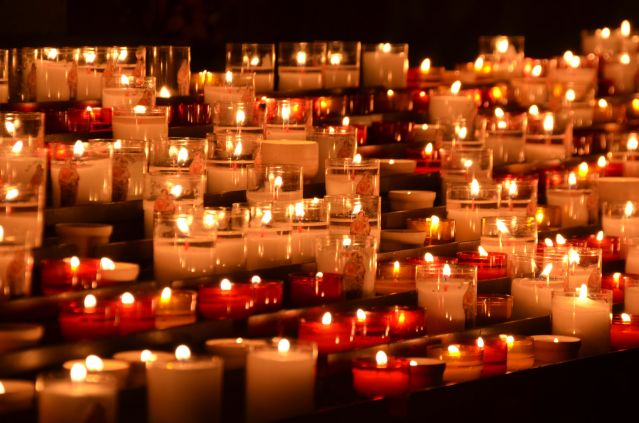Family Dynamics
Why Siblings in Holocaust Families Struggle to Get Along
Siblings respond differently to a parent's trauma, causing estrangement.
Updated January 29, 2024 Reviewed by Lybi Ma
Key points
- Children of Holocaust survivors either remain enmeshed with their families or alienated from them.
- Parents either exposed their children to their horror stories or said nothing about their experiences.
- Children of survivors often parent their own parents, allaying their fears and comforting them.
- Genocidal trauma not only kills some family members; it also ruptures the family for generations to come.

I’m often asked why I’ve written books on topics that seem completely unrelated, ranging from the legacy of the Holocaust and the second-generation experience to sibling estrangement. With International Holocaust Remembrance Day upon us, it seems appropriate to explore this connection.
In both my personal and my writing lives, I have followed a trajectory common to many Holocaust families – from trauma to estrangement.
Sadly, estrangement often characterizes the second-generation experience. That’s because trauma in general, which defines Holocaust families, is a risk factor for estrangement. My mother, who fled Nazi Germany for America in 1938 as a 12-year-old unaccompanied minor, transmitted her early traumatic experiences to my brother and me in the home; it defined our sibling relationship as adults.
How the Holocaust shaped family relations
One study found that parents who experienced trauma are likely to expose their children to ongoing emotional distress. For many children of Holocaust survivors, their own needs were neglected or ignored, a distant second to the needs of their traumatized parents who suffered physically and emotionally. These children frequently became parents to their parents, allaying their anxieties and comforting them. Older children often parented younger siblings as well. In some cases, survivors’ children also acted as the public face for their immigrant parents, who were not fluent in English or were intimidated by any uniformed official who reminded them of the terrorizing Nazis of their youth.
These children often internalized their parents' pain, comparing their own crises with their parents' experiences. Typically they then minimized their suffering, questioning their strength and resilience. They often tried to compensate for their parents' losses, hoping to alleviate grief. Simon Gottschalk, Ph.D., professor emeritus in sociology at the University of Nevada, Las Vegas, noted that some of the children came to feel "victimized both by history, and, more ambiguously, by their parents who are themselves victims."
The responsibilities for Holocaust parents fell hard on daughters especially. Mothers’ responses to the major losses they endured during the Holocaust resembled those of children who lost their parents before reaching adulthood.
“They continued searching for alternate parenting, which was doomed to failure in advance, first from their spouse and then from their oldest daughter,” writes Israeli psychoanalyst Edna Mor in her work about Holocaust survivor mothers and their daughters. “The feelings of an empty vacuum (left by their murdered parents) derived from the mother’s unprocessed mourning were transferred without words to her daughters.”
Studies identify characteristics of Holocaust families
Most of the literature examining post-Holocaust parenthood shows how survivors were emotionally limited, and they couldn't provide their own children with normal family life. Studies show specific dynamics in the parent-child relationship of Holocaust families:
- Many parents who survived the war were found to be emotionally unavailable to address their children’s emotional needs. Some had numbed themselves to survive; others had never mourned their losses. Preoccupied by the deaths of loved ones, these parents often suffered from feelings of self-hatred and worthlessness. One survivor realized that her young son never smiled because she didn’t, so she practiced by grinning at herself in a mirror. Many simply could not love or nurture their children and help them develop a positive self-image.
- Studies show that survivor parents either excessively exposed their children to their horrible experiences, or stonewalled— saying nothing about what they had endured. They did, however, use indirect, non-verbal styles of communication that created guilt in their children. Through these communication patterns, the parents transmitted their traumas to their children. Poor communication is a major risk factor for sibling estrangement, and survivor-parents did not model good communication skills.
- Many survivor-parents were overly involved in their children’s lives. Research has found that survivor-parents were often hypersensitive and anxious about their children’s behavior, trying to force conformity as well as high achievement. They also over-protected their children, to the point of suffocation. This behavior made it difficult for children to become autonomous. When a child did manage to separate, he or she was seen as betraying or abandoning the family. Survivors tended to view their children as replacements for everything that was lost, leading to a clinging over-involvement.
Clinical studies also show that children of Holocaust survivors either remain enmeshed with their families or alienated from them. Children typically have had one of two reactions to the parents’ outsized needs: they parent their own parents, or distance—perhaps cut off—from the family. These responses may contribute to deep resentments and division between siblings, ultimately resulting in estrangement.
“Mutual resentments often cause dissolution of ties between siblings and their families in adulthood,” writes Irit Felsen in Parental Trauma and Adult Sibling Relationships in Holocaust-Survivor Families. “Such processes represent the intergenerational transmission of effects related to parental trauma that extend beyond the parent-child dyad, influencing the matrix of relationships in the family as a system, and damaging the sibling bond.”
Dysfunction plagues subsequent relationships in Holocaust families, often resulting in broader family connections lost through estrangement. One of the devastating consequences of genocidal trauma is that it not only kills family members themselves but also ruptures the family for generations to come.
References
Felsen, Irit, (July, 2018) Parental Trauma and Adult Sibling Relationships in Holocaust-Survivor Families, Psychoanalytic Psychology
Bar-On, Daniel and Chaitin, Julia (2001) Parenthood and the Holocaust, Based upon Search and Research, 1, Jerusalem, Yad Vashem,
Mor, Edna (Autumn, 1992) Psychoanalysis in Europe,The Intergenerational Mourning Process as a Journey in Search of Ties with One's Mother, Holocaust Survivor Mothers and Their Daughters
Gottschalk, Simon (22 December 2011) Symbolic Interaction, Reli(e)ving the Past: Emotion Work in the Holocaust's Second Generation




